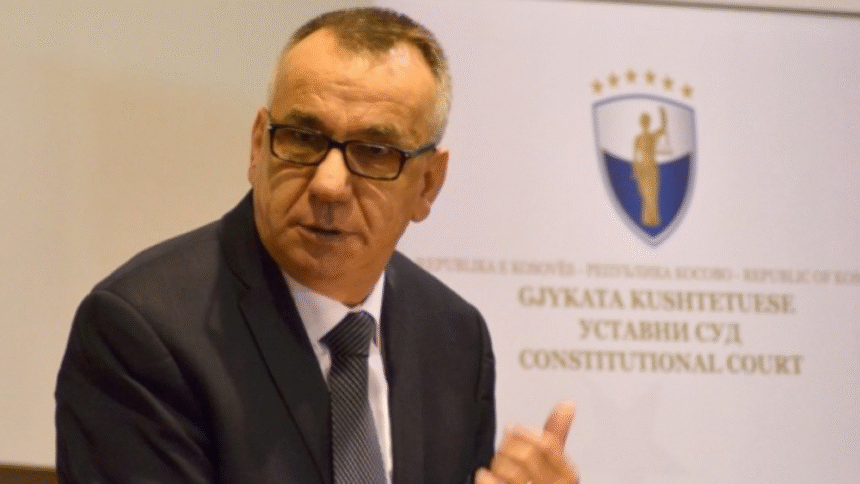Former President of the Constitutional Court, Enver Hasani, has stated that the dispositive of the Court’s ruling on the constitution of the Kosovo Assembly is “extremely clear” and that, if there is political will, the process can be concluded.
However, Hasani pointed out what he called two “flaws” in the decision: the order for Avni Dehari to continue the parliamentary session despite, in his view, having committed a constitutional violation, and the directive for MPs to participate and vote without specifying punitive measures in case of non-compliance.
He expressed his belief that the absence of such sanctions is the result of “interference” by Kosovo President Vjosa Osmani through her public statements.
“I think the Court erred in this respect because it should have clearly indicated the sanctions—such as decertification, loss of mandate, and so forth—if MPs fail to constitute the Assembly within 30 days. In this sense, I believe there are two flaws which, from a judicial and constitutional law perspective, are not entirely compatible. In terms of clarity, if there is goodwill, the dispositive is extremely clear,” Hasani told Radio Free Europe.
He emphasized that the unconstitutional situation began “the moment Dehari changed the agenda” and that Dehari now has a constitutional obligation to implement the Court’s decision.
Hasani stressed that “the lack of consequences” is one of the decision’s main defects and argued that the reason the Court did not set out measures was President Osmani’s influence.
“One could speculate about a lack of courage. The reason why the ruling did not go all the way is the statement made by President Osmani. It is clear that she may have influenced the dispositive in terms of not setting sanctions—this is interference in the judiciary and, in one way or another, an intimidation of the Court. The Court did not fully conclude this ruling because it is evident that one judge is against it,” he said.
Hasani also criticized the President’s public attack on Judge Radomir Llaban, calling it “interference in the judiciary” and “clear political immaturity.”
“I am certain this is the reason behind the dispositive. The lack of punitive measures after the 30-day deadline and the issue of Mr. Dehari are the result of influence from President Osmani,” Hasani concluded.







